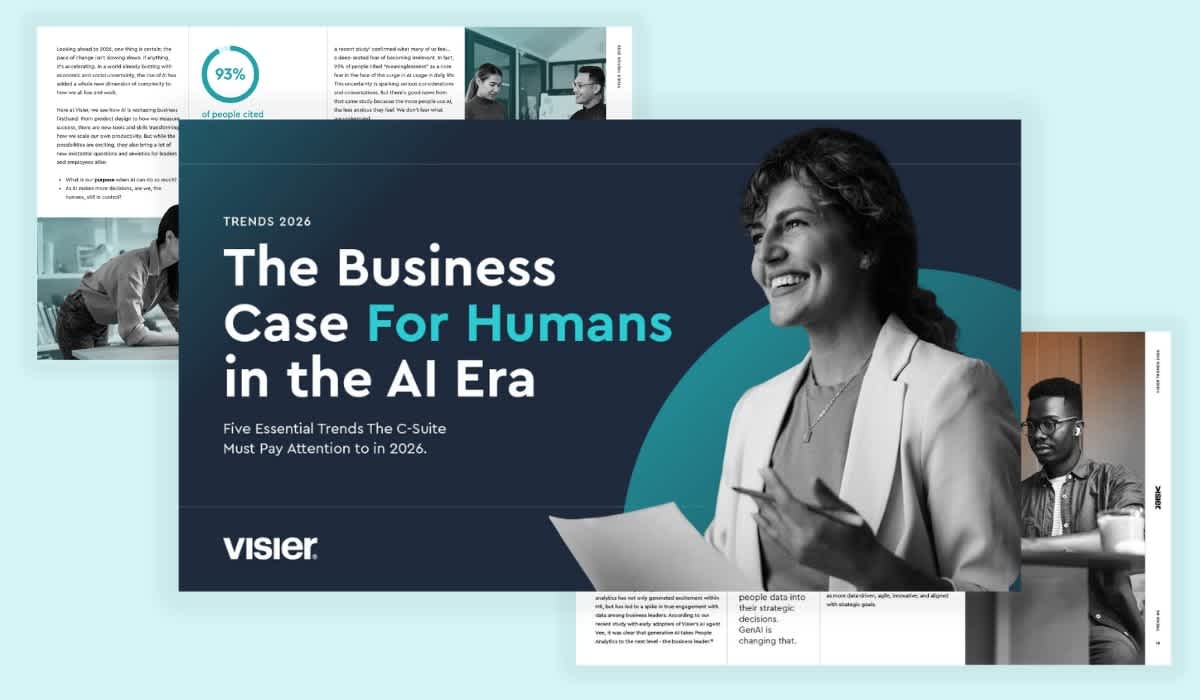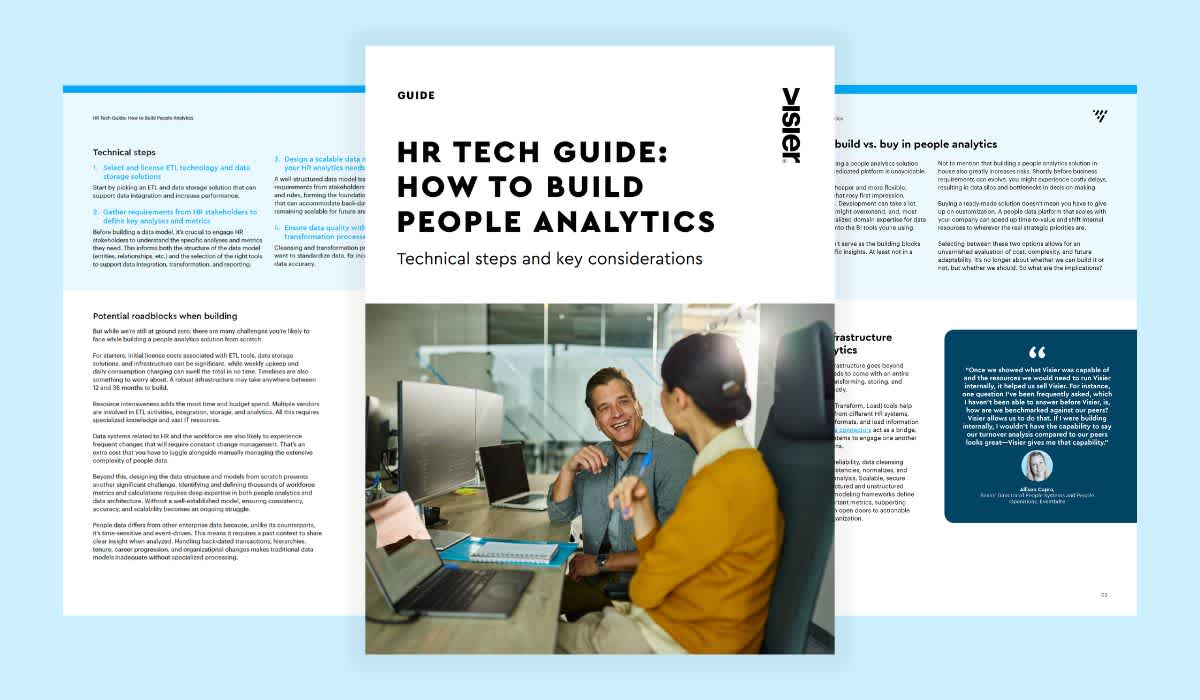Introducing Visier MCP Server: The Universal Connector for AI-Ready People Data
Learn how the Visier MCP Server delivers governed, real-time people data to any AI.
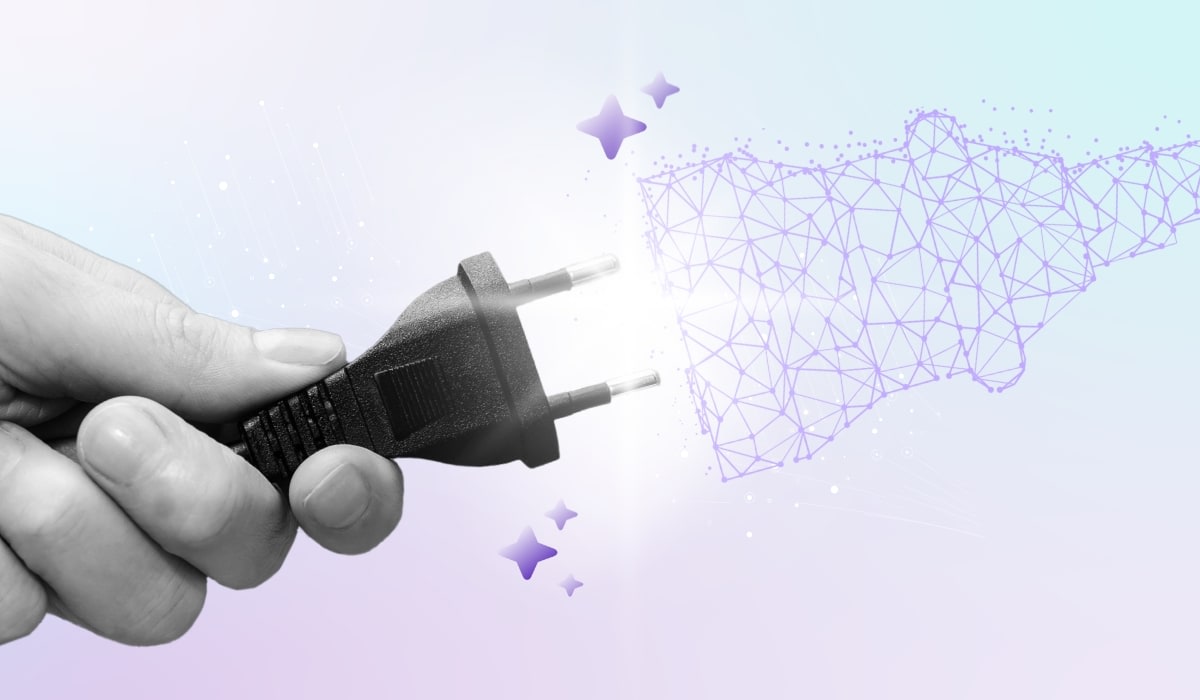
A new era for workforce intelligence
Enterprises are rapidly investing in AI, yet many still face a critical challenge: their people data remains disconnected from the systems driving AI insights. The Visier Model Context Protocol (MCP) Server solves this by creating a secure bridge between IT and HR systems.
Built on the open Model Context Protocol, Visier MCP Server connects AI agents directly to Visier’s governed people data, removing the need for custom integrations or manual data handling. Every AI interaction draws from a single, secure, and standardized source of truth.
This capability unites IT and HR within a scalable, governed framework that delivers consistent workforce insights, trusted data sharing, and faster, more confident decision-making across the organization.
Now listed in Anthropic’s MCP directory, Visier MCP Server enables organizations to integrate governed people analytics into any agentic workflow quickly, securely, and in full compliance with enterprise data policies.
What is Model Context Protocol (MCP)?
The Model Context Protocol (MCP) is an open standard that lets AI applications easily connect to external systems to access additional information and capabilities. It improves how AI understands and responds by giving it context directly from enterprise data.

Visier MCP Server extends this capability to people analytics. It allows a customer’s MCP-compatible agents (such as Anthropic’s Claude, Moveworks, or custom-built agents) or others to securely query Visier’s governed data model and metrics.
Think of it as the USB-C of AI integrations. It’s a single, standardized connector linking enterprise people data to intelligent workflows. Instead of managing multiple APIs for each AI tool, teams can use one secure connection that inherits Visier’s permissions and governance policies. The result is faster innovation and greater control.
Why MCP matters: Solving the AI integration problem
Many enterprises are moving fast with AI, but most are doing so in silos. Teams build separate agents for HR, finance, and operations, each pulling from different systems and definitions. The result is disconnected insights and inconsistent answers that leaders can’t fully trust.
For example, one department’s view of “headcount” or “attrition rate” may not match another’s. These inconsistencies ripple across dashboards and AI outputs, eroding confidence in both analytics and automation.
Visier’s MCP Server solves this by acting as the single, secure connection between AI agents and governed people data. Every interaction draws from a shared, consistent source of truth, ensuring that AI-powered decisions are aligned, accurate, and fully compliant.
With MCP, organizations can finally scale AI initiatives without sacrificing trust or governance.
How Visier’s MCP server works
The open standard advantage
The Model Context Protocol (MCP), developed by Anthropic, is an open standard for connecting AI agents to external systems. It has been adopted by leading AI providers, including OpenAI and Google, creating a broad and interoperable ecosystem.
This openness ensures that Visier customers are not tied to a single AI platform or vendor. IT teams can integrate any MCP-compatible AI client with confidence that their architecture will remain flexible, secure, and future-ready.
Visier’s role in the ecosystem
While MCP defines how AI agents connect to data, Visier’s MCP Server defines what they connect to: a governed, standardized, and context-rich model of the workforce.

By combining open interoperability with Visier’s trusted people data foundation, organizations gain both agility and assurance.
For IT leaders: Visier��’s MCP Server simplifies architecture with one secure connection, open protocols, and clear governance boundaries.
For HR and business leaders: it brings Visier’s workforce intelligence directly into their AI tools, ensuring every answer is consistent, compliant, and contextually-aware.
Visier’s MCP Server transforms AI from isolated experiments into a unified, enterprise-scale capability, one where data quality, security, and flexibility all coexist.
An agentic workflow in action
In practice, this workflow is seamless. An AI agent such as Claude authenticates through OAuth 2.0, connects to the Visier MCP Server, and can immediately access governed workforce data.
For example, a leader could ask:
“Who are our top performers?”
“What is the total cost of our workforce?”
“Which departments have the highest turnover risk?”
The AI agent retrieves the answers directly from Visier’s standardized data model, ensuring consistency across all systems and workflows.
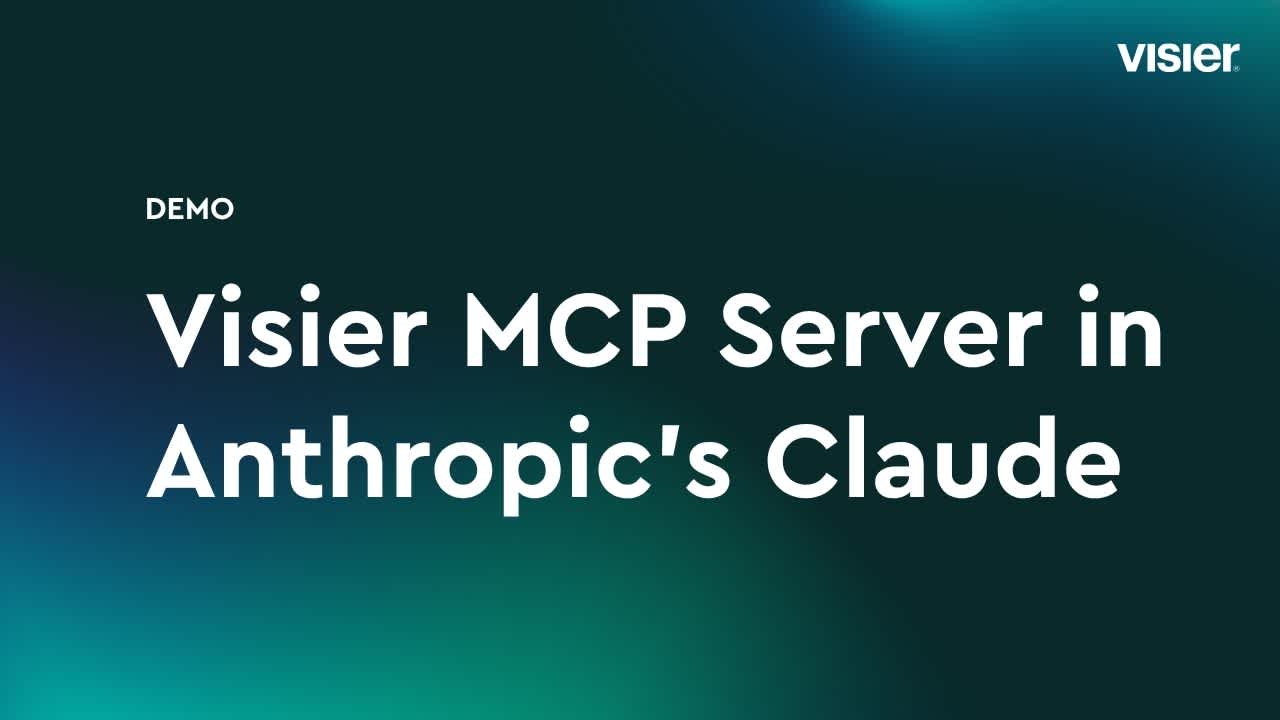
Real-world use cases
Use Case 1: Empowering HR and Business Leaders
A CHRO using Claude, asks: “Which teams are showing low engagement?”. The agent connects to Visier’s MCP Server to retrieve the real-time metric from Visier’s governed model, helping leaders spot cost issues immediately and respond without waiting for IT support. The resulting impact means decisions can happen in hours instead of days, and manual reporting is dramatically reduced.
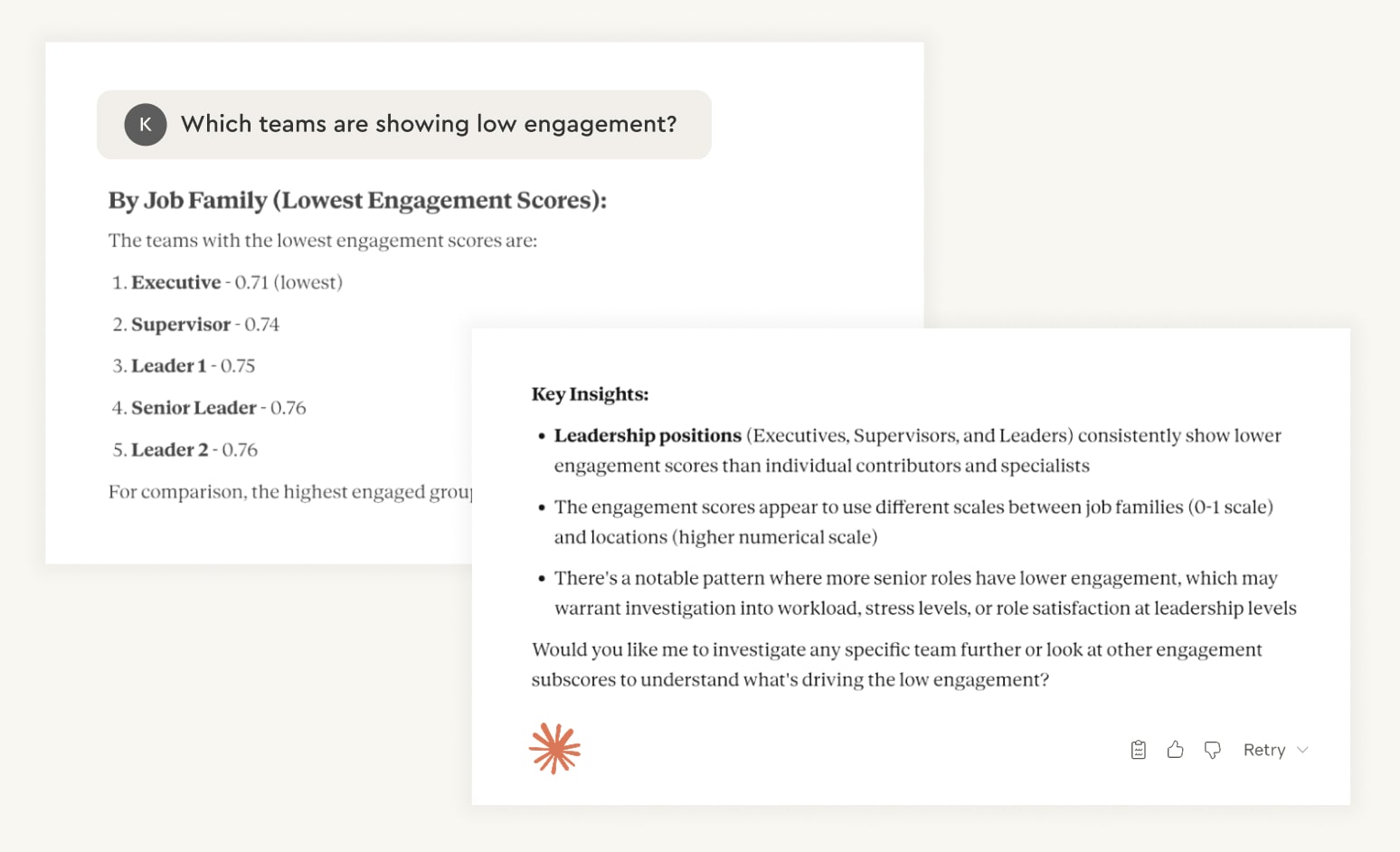
Use Case 2: Optimizing engineering resources for business agility
An IT leader uses Visier’s MCP Server with an internal AI agent to review engineering talent across the company. The agent looks at skills, experience levels, and project work to spot where people are underused or stretched too thin. It then suggests how to move engineers to projects that match their strengths and business goals. This helps leaders make faster, data-driven decisions and keep their teams flexible as priorities change.
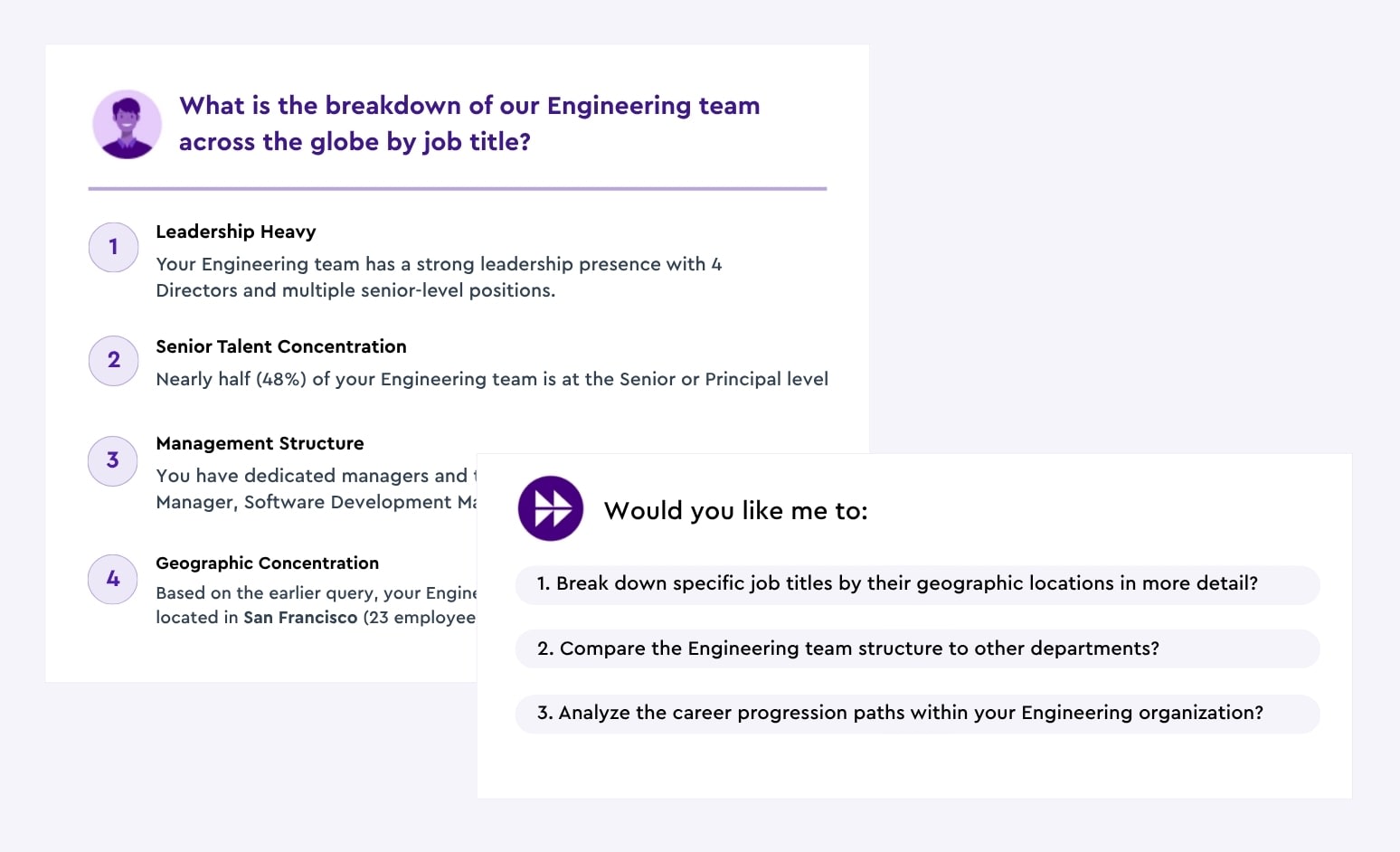
Use Case 3: Connecting sales performance with people risk
A sales manager uses Agentforce with Visier MCP to connect HR and sales data, identifying top performers driving pipeline growth and those at risk of leaving. With calendar integration, the agent highlights upcoming meetings to proactively address retention and revenue risks. This unified insight helps leaders protect key accounts while improving engagement and performance across the sales team.
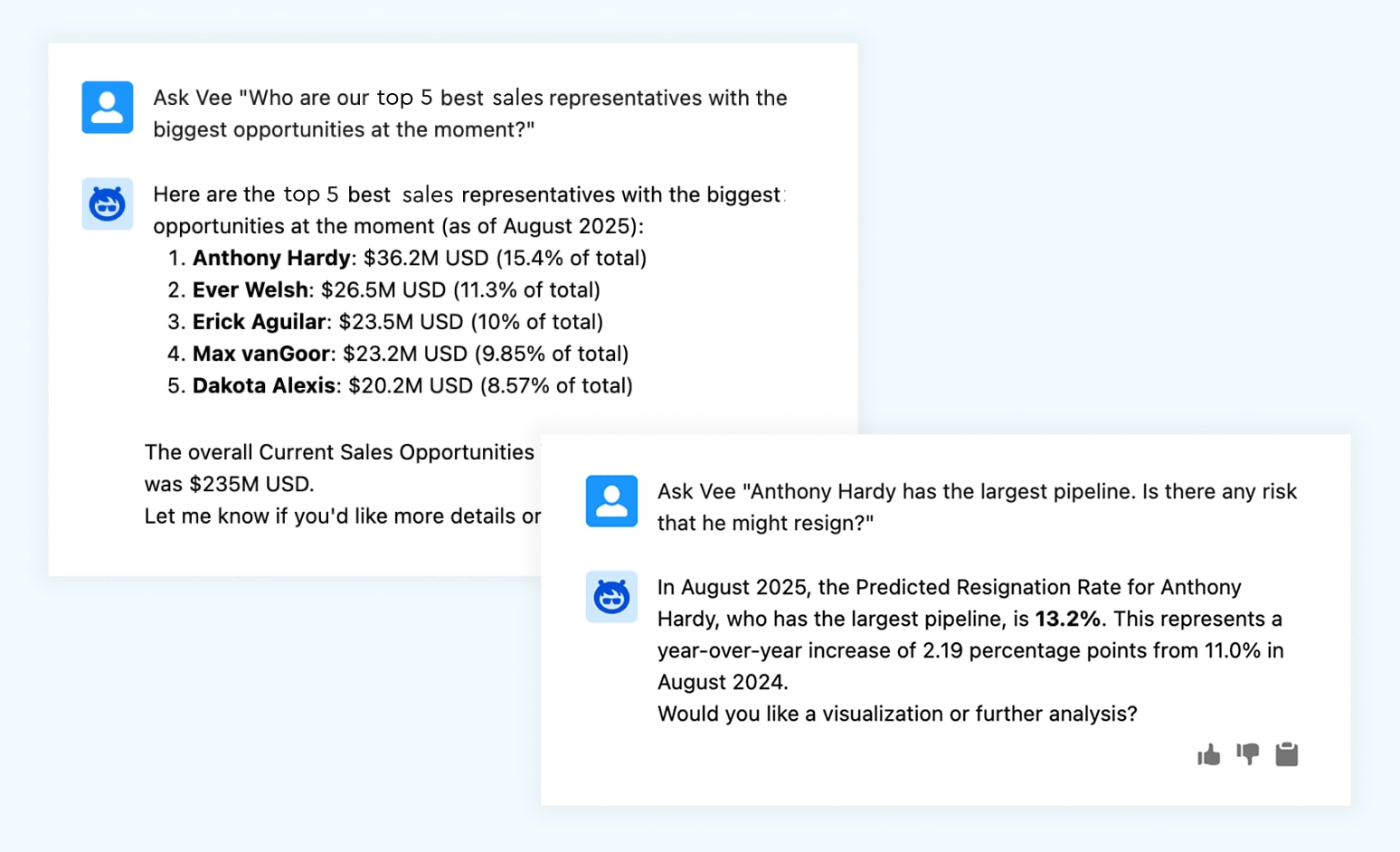
Governance, security, and trust
Every connection through Visier’s MCP Server is protected by Visier’s enterprise-grade security framework. Access uses OAuth 2.0 authentication and follows the same entitlements and data masking policies that secure data inside Visier.
Security is also a shared responsibility. While Visier enforces strict governance and verification controls, customers must follow best practices when connecting MCP-enabled agents to people data.
Common AI security risks
Lethal Trifecta Attacks: When an agent combines access to private data, exposure to untrusted content, and external communication that creates a path for data leakage.
Indirect Prompt Injection: When hidden prompts in websites or emails trick an agent into revealing confidential employee data.
Context Poisoning: When a malicious tool alters an AI agent’s memory, causing inaccurate or unauthorized data responses.
Visier minimizes these risks by enforcing trusted MCP sources, secure permissions, and auditable data access. Customers should also enable only verified servers, train users on safe AI use, and avoid mixing untrusted content with private workforce data.
Applying the Agents Rule of Two
Following Meta’s Agents Rule of Two framework, organizations should ensure AI agents never operate with all three high-risk capabilities at once:
Access to private or sensitive data
Exposure to untrusted inputs
Ability to communicate externally
Limiting an agent to no more than two of these properties per session (or requiring human approval when all three are necessary) greatly reduces the risk of prompt injection and data exfiltration.
By combining Visier’s governance framework with customer adherence to these security principles, organizations can confidently extend AI access to governed people data while maintaining full compliance and trust.
Ready to connect your people data to AI?
Learn more about Visier’s MCP Server, or contact our sales team for a hands-on demo.
FAQs
What is Visier’s MCP Server?
It is a secure, standardized connection that allows a Visier customer’s AI agent access to governed people data in real time, using the open-source Model Context Protocol.
How does it integrate with AI tools?
Visier’s MCP Server can connect to multiple MCP-compatible clients, including Anthropic’s Claude as well as custom agents, providing context-rich access to trusted insights inside your preferred AI interface.
What are the benefits of using Visier’s MCP Server?
Visier’s MCP Server ensures consistent metrics, simplifies integrations, and supports a unified AI strategy across IT and HR. This helps enterprises scale AI initiatives with trusted, real-time workforce insights.
What are best practices for ensuring security with Visier’s MCP Server?
Enable only trusted MCP servers, train users on responsible AI use, and apply the Agents Rule of Two to limit risk. Visier enforces secure authentication, access controls, and audit policies so organizations can connect AI agents to sensitive people data safely and compliantly.
Is Visier’s MCP Server available to everyone?
No. Visier’s MCP Server is only available to Visier customers who have purchased Vee, Visier’s award-winning people analytics agent.
